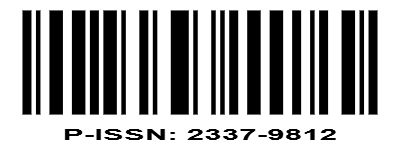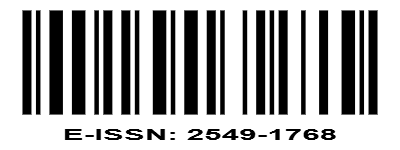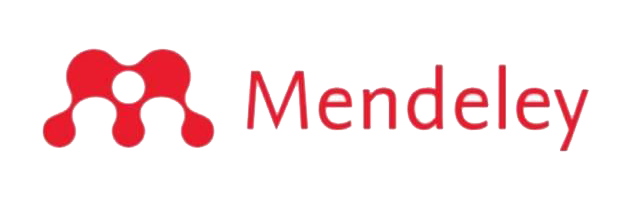PEDAGOGICAL CONTENT KNOWLEDGE (PCK) PROFILES OF SENIOR SECONDARY BIOLOGY TEACHERS AT PUBLIC SCHOOLS IN BIREUEN DISTRICT ACEH INDONESIA
DOI:
https://doi.org/10.22373/biotik.v10i1.10915Abstract
The combination of pedagogical competence and good professional competence becomes a necessity for teachers. PCK is a knowledge developed by teachers over time, through experiences on how to teach the material in various techniques and approaches to gain a wealth of student understanding. This research was conducted to find out the profile of PCK of Biology teachers of senior high schools. The study was conducted in April 2018. The population in this study was all Biology teachers of senior high schools in Bireuen district (N=137). While the samples of this study were 32 Biology teachers selected by cluster sampling. The method used in this research was the quantitative method with descriptive analysis through survey design. Teachers’ PCK was obtained by CoRe (Content Representation) instrument and triangulated data with students’ questionnaire. The results showed that PCK profile of Biology teachers at senior high schools in Bireuen district was at the growing PCK level.
Downloads
References
Afcariano, M. (2008). Penerapan Pembelajaran Berbasis Masalah uruuk Meningkatkan Kemampuan Berfikir Peserta didik Pada Mata Pelajaran Biologi. Jurnal Pendidikan Inovatif, 3(2):65-68.
Akbar, S. 1997. Cooperative Learning. Metode untuk Pengembangan Nilai Kerjasama. Jurnal Ilmu Pengetahuan Sosial. Vol.31. Nomer 1. p.56-62.
Arnyana, I. D. P. (2006). Pengaruh Penerapan Strategi Pembbelajaran Inovatif Pada Pelajaran Biologi Terhadap Kemampuan Berfikir Kreatif Peserta didik. Jurnal Pendidikan dan Pengajaran IKIP Negeri Singaraja, 3:0215- 0250.
Anwar, Y. 2014. Perkembangan Pedagogical Content Knowledge (PCK) Calon Guru Biologi Pada Peserta Pendekatan Konsekutif dan Pada Peserta Pendekatan Konkuren.Disertasi. Program Studi Pendidikan IPA UPI: tidak diterbitkan.
Baxter, J. A. and Lederman, N. G. 1999. Assessment and Measurement of
Pedagogical Content Knowledge. Dalam Gess-Newsome, J dan Lederman, N.G. (Penyunting), Examining PCK: The construct and its implications for science education. Boston: Kluwer Academic Press.
Creswell, J. W. 2017. Research Design. Edisi Keempat. Yogyakarta: Pustaka Pelajar.
Driver, R., Squires, A., Rushworth, P., & Wood-Robinson, V. 2003. Making Sense of Secondary Science: Research into Children’s Ideas. New York, NY: Rutledge Farmer.
Ergul, R, dkk. (2011). The Effects of Inquiry-Based Science Teaching on Elementary School Students' Science Process Skills and Science Attitudes. Bulgarian. Journal of Science and Education Policy (B.JSEP). 5( J ): 48-68.
Haryanti, E. H. W. 2016. Profil Pedagogical Content Knowledge Mahasiswa calon guru Biologi. Jurnal Bioma. Volume 5. Nomor 1.
Leach, J. & Scott, P. 2003. Individual and Socio-cultural Views of Learning in Science Education. Science and Education, Volume 12, Page 91-113.
Loughran, J., Berry, A., dan Mulhall, P. 2012. Understanding and Developing
Science Teachers’ Pedagogical Content Knowledge. Clayton: Monash
University.
Lou, et al. (2010). The impact ofproblem-based learning strategies on STE.A! knowledge integration and attitudes : an exsp/oratory study amongfemale Taiwanese enior hihg school students. Int J Technol Des Educ (201 J) 21: 195-215.
Marzano, R. J. 2012. Coaching Classroom Instructions. Bloomington: Marzano Research Laboratory.
Munawaroh, R, Barnbang, S dan Achmad, S. (2012). Penerapan Model Project Based Learning dan Kooperatif untuk Membangun Empat Pilar Pembelajaran Peserta didik SMP. Unnes Physics Education Journal. 1(1): 1-5
Nastiti G., Achmad A.H. (2012). Pembelajaran lpa Model lntegrated Untuk
Meningkatkan Motivasi Dan Hasil Belajar Pada Pokok Bahasan Energi Di SMP Negeri Purworejo, Jawa Tengah. Jurnal Berkala Fisika Indonesia. Volume4 Nomor I & 2.
National Research Council (NRC). 1996. National Science Education Standards.
Washington DC: National Academic Press.
Pembriati, E. Z., Sigit S., dan Sarwono. (2013). Pengaruh Model Pembelajaran Terpadu Pada Pengintegrasian Materi Pengurangan Risiko Bencana Dalam Mata Pelajaran IPS SMP Terhadap Pengetahuan Dan Kesiapsiagaan Bencana. Jurnal Bumi Lestari Vol 1, No 1: 1-8.
Peraturan Menteri Pendidikan dan Kebudayaan Nomor 78 Tahun 2013. 2013. Kerangka dasar dan Struktur Kurikulum. Jakarta: Depdikbud.
Purwormi, S. E. (2006). Pcmbelajaran Berbasis Proyek Sebagai Upaya Mengembangkan Habit of Mind Studi Kasus di SMP Nasional KPS Balikpapan. Jurnal Pendidikan Inovatif. 1(2): 17-19.
Santoso, Ahmad Makmur. (2013). Penerapan Model Science Technology Society Melaluiliksperimen Lapangan Dan Eksperimen Laboratoriumliitinjau Dari Sikap Peduli Lingkungan Dankreativitas Verbal Siswa. Jurnal Inkuiri. Vol 2, No 3 (204-215 ). Surakarta: Universitas Sebelas Maret.
Savery, J. R. (2006). Overview of problem-based learning: Definitions and distinctions. The Interdisciplinary Journal of Problem-Based Learning, 1( I), 9-20. Journal of Problem-Based Leaming, 3(1), 12-43
Saputra, E. 2018. The enhancement of spatial levels reviewed from students’ cognitive styles. Journal of Physics: Conference Series. Volume 1028. Conference 1.
Setiawan, I. G. A. N. (2006). Penerapan pembelajaran Kontekstual Berbasis Masalah untuk Meningkatkan Hasil Be/ajar Biologi Peserta didik Kelas X2 SMA Laboratorium Singaraja. Jurnal Penelitian dan Pengembangan Pendidikan, 2(1)42-59.
Setiawan, Fitrajaya, Mardiyanti. 2010. Penerapan Model Pengajaran Langsung (Direct Instruction) untuk Meningkatkan Pemahaman Belajar Peserta didik dalam Pembelajaran Rekaysa Perangkat Lunak (RPL). Jurnal Pendidikan Teknologi Informasi dan Komunikasi, Vol 3. No 1. Hal. 7-10
Undang-Undang RI Nomor 14 Tahun 2005 tentang Guru dan Dosen. Jakarta: Fokus Media.
Yasin, M. (2009). Implikasi Pembelajaran Sains Terpadu (Integrated Science Instruction) di SMP . .Jurnal Pemikiran Alternatif Kependidikan Vol; 14 No. 1: 172-188.
Yohafrinal, dkk. 2015. Analisis Pedagogical Content Knowledge (PCK) Guru MIPA di SMA Negeri 11 Kota Jambi. Edu Sains. Volume 4. Nomor 2.
Zubaidah, Siti. 2010. Restrukturisasi Pemahaman Berbagai lstilah Pada Penulisan Komponen Metodc Dalam Rencana Pelaksanaan Pembelajaran. J-TEQIP, Tahun I, Nomor 1, November 2010.
Downloads
Additional Files
Published
Issue
Section
License
Authors who publish with BIOTIK: Jurnal Ilmiah Biologi Teknologi dan Kependidikan agree to the following terms:
- Authors retain copyright and grant the journal right of first publication with the work simultaneously licensed under a Creative Commons Attribution License that allows others to share the work with an acknowledgement of the work's authorship and initial publication in this journal.
- Authors are able to enter into separate, additional contractual arrangements for the non-exclusive distribution of the journal's published version of the work (e.g., post it to an institutional repository or publish it in a book), with an acknowledgement of its initial publication in this journal.
- Authors are permitted and encouraged to post their work online (e.g., in institutional repositories or on their website) prior to and during the submission process, as it can lead to productive exchanges, as well as earlier and greater citation of published work.











